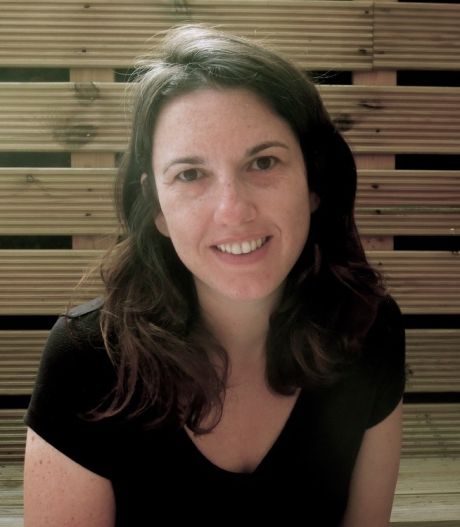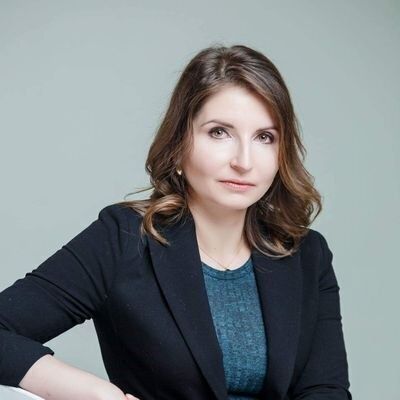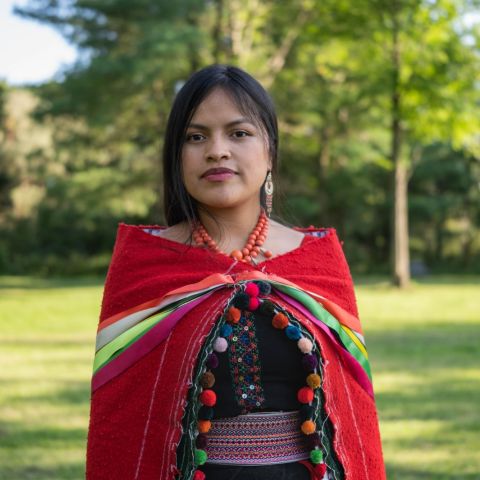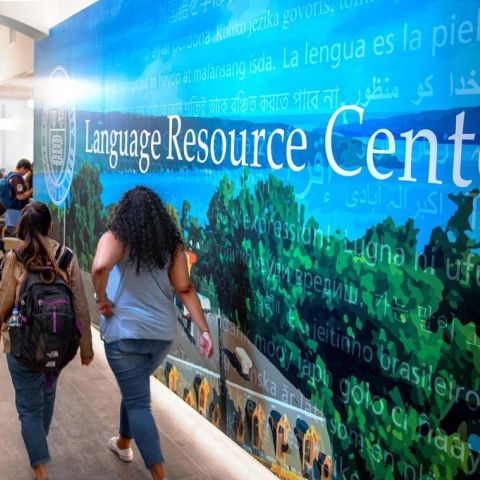Reppy Institute for Peace and Conflict Studies
3 Ways the China-Taiwan Standoff Could Impact World Markets

Sarah Kreps, PACS
Sarah Kreps, professor and director of the Cornell Tech Policy Lab, says China semiconductor chip imports, including from Taiwan, "have become almost a third rail," that China does not want to touch.
Additional Information
Rule of Law or Rule by Force in Outer Space

November 3, 2022
11:25 am
War in space is not inevitable. Outer space is not ‘wild west.’ There are fundamental rules of international law that govern all space activities, including military space activities. Outer space must be used for the benefit and interest of all states and for peaceful purposes. Outer space must be explored and used in accordance with international law, including the Charter of the United Nations, in the interest of maintaining international peace and security. However, the sources of international legal principles and rules applicable to all space activities are varied and thus they create a complex legal regime governing outer space.
Professor Ram Jakhu's lecture will address key principles of international law, which must be understood and studied from a neutral perspective and applied effectively. He explains that this is necessary to uphold the rule of law and avoid the use of force in outer space not only to maintain international peace and security but also to assure unprecedented benefits of outer space to the entire humanity.
Please join us for this virtual conversation. Register here
About the Speaker
Professor Ram S. Jakhu is a tenured Professor at the Institute of Air and Space Law, Faculty of Law, McGill University, Montreal, Canada. For the last four decades, he has been teaching and conducting research in international space law and public international law. He held several positions, including the Director of the McGill Institute of Air and Space Law, and the first Director of the Master of Space Studies Program of the International Space University, France.
***
Presented by the Reppy Institute for Peace and Conflict Studies. Co-sponsored by the Gender and Security Sector Lab and the Department of Science and Technology Studies.
Additional Information
Program
Einaudi Center for International Studies
Reppy Institute for Peace and Conflict Studies
Pelosi's Taiwan Trip Shows US and China Aren't Ready to Fight over 'Third Rail" of Chips

Sarah Kreps, PACS
"I think both the U.S. and China are starting to become a bit more pragmatic when it comes to semiconductors,” says Sarah Kreps, professor of government and public policy.
Additional Information
Global Inequality Is Rising Again

Ravi Kanbur, PACS/SAP
This piece references research by Ravi Kanbur, professor of economics and policy, suggesting global inequality may rise in steady fashion for years to come.
Additional Information
As Ruble Cascaded Out of Russia via Crypto, Binance Capitalized

Sarah Kreps, PACS
“People in emerging markets have always found ways to move their capital out of the country to seek a more stable currency,” says Sarah Krepps, professor of government and public policy.
Additional Information
Topic
- Development, Law, and Economics
Program
Why and How Gandhi Civilized Disobedience

October 20, 2022
11:25 am
Many contemporary theorists and practitioners of disobedience have questioned whether civility and nonviolence ought to be requisite components of legitimate dissent. While sharing their skepticism of overly narrow, prescriptive formulations of a moral or legal right to disobedience, Professor Karuna Mantena considers broader practices of civility and explores their purpose and function in terms of the political logic of nonviolent protest. She does so by way of a historical and conceptual analysis of why and how Gandhi introduced civility into the theory and practice of nonviolent disobedience. The emphasis on civility in disobedience marks a significant departure from Thoreau’s understanding, in which the term “civil” designated the object of resistance (namely, civil government or the state) and not its character.
Gandhi began to insist on civility in nonviolent protest as a remedy to the violence that accompanied his first attempts at mass satyagraha in India (1919-1922). He diagnosed this violence as stemming in part from the unmasterable character of political action. Civility as a form of self-discipline was devised to manage and mitigate action’s inherent hazards. The speaker will highlight two novel aspects of this formulation: the ways in which civility was to be formalized, performed, and dramatized in satyagraha and how such practices served to make protest more persuasive.
Please join us for this virtual conversation. Register here.
About the Speaker
Karuna Mantena is a Professor of Political Science at Columbia University and co-director of the International Conference for the Study of Political Thought (CSPT). She is the author of Alibis of Empire: Henry Maine and the Ends of Liberal Imperialism (2010), which analyzed the transformation of nineteenth-century British imperial ideology.
***
Presented by the Reppy Institute for Peace and Conflict Studies. Co-sponsored by the Department of History and the Gender and Security Sector Lab.
Additional Information
Program
Einaudi Center for International Studies
Reppy Institute for Peace and Conflict Studies
South Asia Program
Afghanistan One Year Later: Reflections on Life Under the Taliban

August 25, 2022
5:30 pm
Uris hall, Terrace
One year ago, on August 15, 2021, the Taliban entered the Arg (Presidential palace) in Kabul, completing their astonishingly rapid takeover of Afghanistan. At the end of that same month, US forces completed withdrawal from Afghanistan – marking an end to the longest war in American history. One year later, our speakers reflect on Afghanistan’s recent history, life under the Taliban regime, and what we might expect in the near future as the Taliban engages with the international community. We welcome attendees to join us for a fireside conversation about this critical geopolitical topic.
Speakers
Zinab Zhra Attai, Reppy Institute Director’s Fellow, Ph.D. student in Comparative Politics, Cornell University
Sharif Hozoori, Visiting Scholar, South Asia Program & IIE-SRF Fellow
Maryam Amini, Global Development, Cornell CALS
Moderator
Sabrina Karim, Hardis Family Assistant Professor for Teaching Excellence, Associate Director, Reppy Institute for Peace and Conflict Studies
***
Presented by the Reppy Institute for Peace and Conflict Studies. Co-sponsored by the South Asia Program and the Gender and Security Sector Lab.
Additional Information
Program
Einaudi Center for International Studies
Reppy Institute for Peace and Conflict Studies
South Asia Program
When Soldiers Rebel

October 13, 2022
11:25 am
Professor Kristen Harkness will discuss her book When Soldiers Rebel: Ethnic Armies and Political Instability in Africa (Cambridge University Press, 2018). The book argues that the processes of creating and dismantling ethnically exclusionary state institutions engender organized and violent political resistance. This explains both the motivations and timing of rebellion: while exclusionary institutions and group grievances may persist over many years, it is in brief and rare intervals that entire systems of ethnic privilege and disadvantage are created or destroyed.
Focusing on African militaries and when soldiers rebel against the state on ethnic grounds, it is shown that when leaders attempt to build ethnic armies, or dismantle those created by their predecessors, they provoke violent resistance from military officers. This poses a deep challenge to democratization, which has brought new leaders to power who threaten Africa’s legacy of ethnic armies.
Please join us for this virtual conversation. Register here.
About the Speaker
Dr. Kristen A. Harkness is a Senior Lecturer in the School of International Relations at the University of St. Andrews. Her research focuses on understanding how ethnicity shapes the loyalty and behavior of military institutions in Africa and has been funded by the British Academy.
***
Presented by the Reppy Institute for Peace and Conflict Studies. Co-sponsored by the Institute for African Development and the Gender and Security Sector Lab.
Additional Information
Program
Einaudi Center for International Studies
Reppy Institute for Peace and Conflict Studies
Institute for African Development
Rare and Distinctive Language Fellowships

Details
If you love languages, our newest summer funding opportunity is for you!
Rare and distinctive (RAD) languages set Cornell apart. Cornell offers over 50 languages, including some of the world's least frequently taught—from Ukrainian to Quechua, Urdu to Burmese.
With the help of a RAD Language Fellowship, you can achieve fluency in your choice of these languages. Learning RAD languages offers insight into vibrant cultural identities and traditions and gives you the ability to work effectively in places around the globe.
Cornell Chronicle: Einaudi Fellowships Support Students Learning Uncommon Languages
Amount
For summer study at any level (graduate or undergraduate): $3,500 stipend, plus a fees and tuition allowance of up to $5,000.
Eligibility
All currently enrolled Cornell graduate and undergraduate students are eligible for RAD fellowships. You do not need to be a citizen or permanent resident of the United States or complete a FAFSA, which FLAS requires.
You must be planning to study a modern language among the least commonly taught languages offered at Cornell (see sidebar).
To be a successful applicant, you need to show potential for high academic achievement and agree to pursue full-time study of a language in accordance with the university’s requirements. You do not need to have previous experience or coursework in the language you plan to study. Lowest priority will be given a candidate who is a native speaker of the language.
How to Apply
In your application, you will be asked to provide information on your proposed study location. You must identify your own preferred program.
We recommend the following U.S. summer intensive language programs, although we will consider any programs—domestic or overseas—that meet the minimum requirements.
- African Summer Language Institute (ASLI)
- Indiana University Summer Language Workshop
- South Asia Summer Language Institute (SASLI)
- Southeast Asian Studies Summer Institute (SEASSI)
- YIVO-Bard Summer Program
Your program must be at least six weeks in duration and offer at least 120 student contact hours. Please indicate the language level you intend to study during the award period.
Requirements
- Be a currently enrolled Cornell student.
- Plan to attend an approved summer intensive language acquisition program.
- Use the online application to submit your materials, including:
- Two letters of recommendation from faculty members.
- An official transcript of one full academic year of coursework.
- An optional third letter of recommendation from a language instructor.
Foreign Language and Area Studies Fellowships
RAD fellowships expand the scope of language study supported by Einaudi's Foreign Language and Area Studies Fellowships. If you are a U.S. citizen or permanent resident studying a language of South or Southeast Asia, please apply for a FLAS fellowship for a summer or full year of study. Apply for the RAD Language Fellowship if you are:
- studying a language from outside of South or Southeast Asia, or
- studying a language of South or Southeast Asia, but you are not a U.S. citizen or permanent resident.
Both opportunities have the same deadline.
RAD Language News and Opportunities
Additional Information
Fighting Yesterday's War: Soviet Influences in Putin's Foreign Policy

October 6, 2022
11:25 am
Dr. Maria Snegovaya examines the drivers of Russian revanchism. Russia’s behavior has thrown into doubt the purported strength of international norms regarding territorial integrity, not least because Putin himself has spoken of seeking to ‘re-gather’ adjacent territory deemed ‘lost’—as they had been once under possession by Imperial Russia or the Soviet Union—through military means.
While recognizing that decisions to go to war and to reclaim lost territory are complex and multifaceted, the speaker argues that many analyses overlook—ironically—the nature of the political regime that rules Russia. If domestic political variables do matter for observers of Russia, the emphasis is on how Russia is institutionally autocratic such that it will pursue a foreign policy more aggressive than what would have been the case if it were democratic.
Maria Snegovaya and her co-author define a political regime in both institutional and behavioral terms to acknowledge the structural organization of power as well as the qualities of the elites that exercise influence. They show a strictly institutional definition of political regimes neglects the elite continuity that ties together the Soviet and the Russian leadership. This elite continuity across the two systems matter because the political regime still privileged particular beliefs about the use of force to settle international disputes, the intentions of the United States, and the relationship that certain nations should have vis-à-vis Russia. These beliefs, which they show to hold sway, had their Soviet antecedents.
Please join us for this virtual conversation. Register here.
About Speaker
Maria Snegovaya is a Postdoctoral Fellow in Political Science at Georgetown University's Walsh School of Foreign Service, a Visiting Scholar at the Institute for European, Russian, and Eurasian Studies at George Washington University, and Adjunct Senior Fellow at the Center for New American Security. She is a comparative politics, international relations, and statistical methods specialist. The key focus of her research is democratic backsliding in Central and Eastern Europe, as well as Russia’s domestic and foreign policy.
***
Presented by the Reppy Institute for Peace and Conflict Studies. Co-sponsored by the Institute for European Studies and the Gender and Security Sector Lab.
Additional Information
Program
Einaudi Center for International Studies
Reppy Institute for Peace and Conflict Studies
Institute for European Studies


